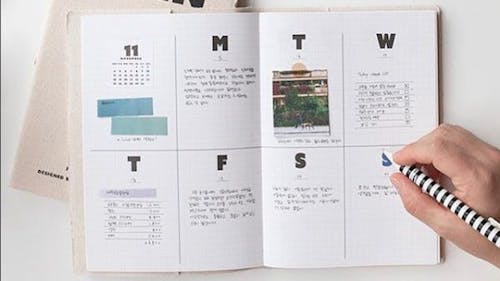As midterm season ends, improve as student from past mistakes

For most of us, midterms are either over or nearing the end. Whether you did well, you're probably just glad it’s over. Midterms bring about high stress levels, sleepless nights and unhealthy habits that make turning in your last midterm feel like finishing a marathon. This relief can make us feel a little too comfortable when the time comes to start the second half of the semester. Once again, you may put off studying until next week and inevitably start writing essays at the last minute. This is why it’s crucial to not get too comfortable after midterms.
There are roughly two months left in the semester, which means that although an A might not be feasible due to a slow start, yet B’s or C’s are. After midterms, a good practice is to be honest with yourself and look at the areas where you are lacking.
We are all greatly controlled by our habits, either good or bad. They dictate performance and behavior not only in personal life, but also in school. While bad habits “may not have been very serious back then (during high school), but in college the stakes are higher," according to Collegeraptor.
They go on to list some of the worst habits, including procrastination, not coming to class prepared and not reading the books assigned.
Procrastination and not coming to class prepared go hand in hand with lower grades and test scores. It may be tempting to skip class as the weather cools down and we find it increasingly harder to leave the warmth of our beds, but having the strength to do so will come in handy and will leave you better prepared come finals season. But, coming to class prepared involves more than coming with a notebook and pencil and writing down notes.
Truly coming to class prepared means reading material that was assigned that day, taking notes, being attentive and paying attention to the lecture. Being prepared and paying attention allows you to spend less time studying and gives you the ability to better manage your time studying as you will only have to study material you are unfamiliar with rather than trying to cram an entire month or two worth of material the night before an exam.
Chris Mindanao, a School of Arts and Sciences junior, believes that office hours are key to ending a class successfully. “Since professors usually take a while to give back exams and assignments, it is best to go to office hours to go over your work. If you did poorly on your midterm, for example, you should talk to your professor or TA about what you did wrong and talk about material that you had trouble on,” Mindanao said.
Even if you fail a test, feel like you do not understand what the professor is saying or are going through personal problems which stand in between you and your academics, professors are there to help you succeed. You should be honest with your professors and take advantage of their office hours. Asking what can be done, setting goals for yourself and re-evaluating your approach to studying is helpful in making sure you end the class and semester on a high note.
What is important to remember though is that although your grades are important, so is your mental health. Victoria Ludington, a School of Arts and Sciences sophomore, says that self-love should be paramount and warns students to not be scared of failure.
“While outstanding resumes and GPAs are important, it is important to check in on your mental health and ensure you are happy and healthy. Also you can’t be afraid to fail. Some of the best people throughout history have failed,” Ludington said.
“Charles Darwin was once considered an average student, and Thomas Edison’s teachers discouraged him from pursuing science. It is important to reflect on all the positive things you have going on, rather than the negative," she said.
Ludington touches on a very important point that is not always given the attention it deserves. Many times, we are hard on ourselves after we fail, get a lower grade than we expected or simply find ourselves stressed and stretched too thin with school, work and life. We often forget that we are living for ourselves, not for a grade.
The best thing to do to ensure that you end the semester on a high note is to be proactive and attentive. Re-evaluate studying techniques and habits, go to office hours and set realistic goals, but never give up and let midterms to discourage you or dictate your future.



